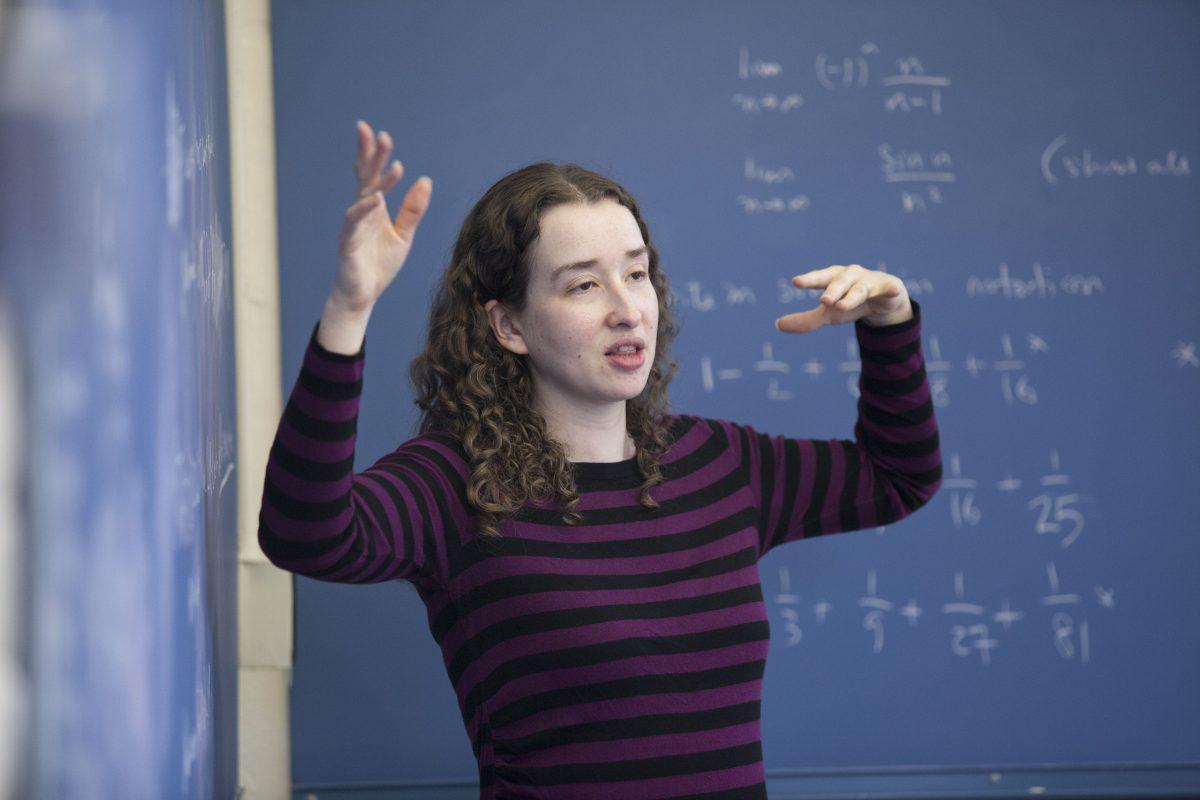As a response to an increasingly “data-driven world,” as described by Professor Cassandra Pattanayak, Lecturer in Quantitative Reasoning and Mathematics, Wellesley College’s math department has recently announced that students will now be able to pursue a minor in statistics. The possibility of a statistics minor was discussed for several years and finally came to serious conversations in the fall of 2016.
The initial meetings, which involved members of the Quantitative Analysis Institute (QAI), math, psychology, economics and computer science departments, went over issues regarding the minor, including its structure and goals. According to Professor Pattanayak, “The minor aims to provide both a theoretical grounding in the foundations of statistical thinking and applied skills that allow students to navigate the conceptual and practical challenges of data analysis.”
Over the past four years, the math department has increased the number of intermediate and advanced- level statistics courses offered. The move was met with great student enthusiasm, which proved that there was a general interest to expand the specific area of study even further. After obtaining support from the math department, Professor Pattanayak and Assistant Professor of Mathematics Wendy Wang, submitted an official proposal in February to ratify the statistics minor.
Professor Pattanayak has made considerable efforts in the past four years to provide a relevant place for statistics on campus. She noted that “As Wellesley students graduate and enter an increasingly data-driven world, the opportunity to study statistics past the introductory level is crucial.” She started by founding the QAI shortly after her arrival at Wellesley four years ago. According to the QAI’s page on the College website, the main objective of the institute is to “expand the role of statistics in research, learning, and teaching at Wellesley.” It continues to offer various statistical resources year-round for both students and faculty.

Professor Pattanayak explained that she and Professor Wang, who both specialize in statistics, can teach the necessary classes and provide ample mentorship for their minors. Professor Wang, who was hired this year, explained the increasing importance of statistical knowledge in the job market today: “There is strong demand in the workplace for knowledge in statistics and data analytical skills … through the statistics minor, students will become more competitive in job markets and workplace, and will be well equipped to pursue graduate degree in statistics or related fields in the future.”
With a statistics minor, students will be able to focus on advanced-level statistics without having to declare a math major. Madisen Quick ’18, an English major and Mathematics minor, supports the creation of the statistics minor: “As a math minor, the five class requirement including MATH 205 and MATH 206 doesn’t leave a lot of room to pursue statistics rigorously … The addition of a minor focused on statistics is a great opportunity for students who are interested in statistics and don’t have the coursework room to complete the mathematics major.” In order to distinguish the classes and streamline the enrollment process, the course catalog will now feature the prefix STAT for those relevant courses.
Professors Wang and Pattanayak explained that this change is a necessary and beneficial step forward within the department. Several of the graduated math majors had enough statistics experience to graduate as a minor but were unable to be acknowledged for their coursework.
Now, as Professor Wang stated, those interested students can both be recognized as statisticians, “become more competitive in job markets and workplace, and will be well equipped to pursue graduate degree in statistics or related fields in the future.”
Quick commented that statistics coursework will also benefit those who desire to work in business but lack the necessary background to remain competitive. She indicated that having a statistics minor will prove helpful to those who need experience in quantitative analysis to succeed in their professional careers.

The opportunity to take specific statistics courses may also attract non-math majors to explore their interest in the discipline, as well. Professor Wang explained that “statistics is an interdisciplinary subject, and data is everywhere.” Its increasing relevance and presence across all disciplines could attract students who generally shy away from STEM subjects or otherwise lack the opportunity to explore statistics. The courses could expand their interests while diversifying and strengthening their skill sets.
On April 12, Professors Pattanayak and Wang held an open information session announcing the new minor to the student body. Over 30 students attended the event and showed great enthusiasm for the minor and future course offerings. Looking forward, Professor Pattanayak hopes “that the presence of a course sequence in statistics will increase the number of students who graduate with advanced statistical skills, whether or not they earn the minor.”






